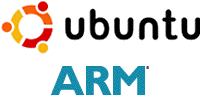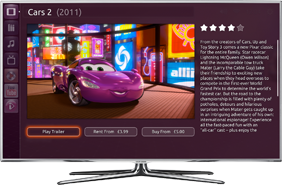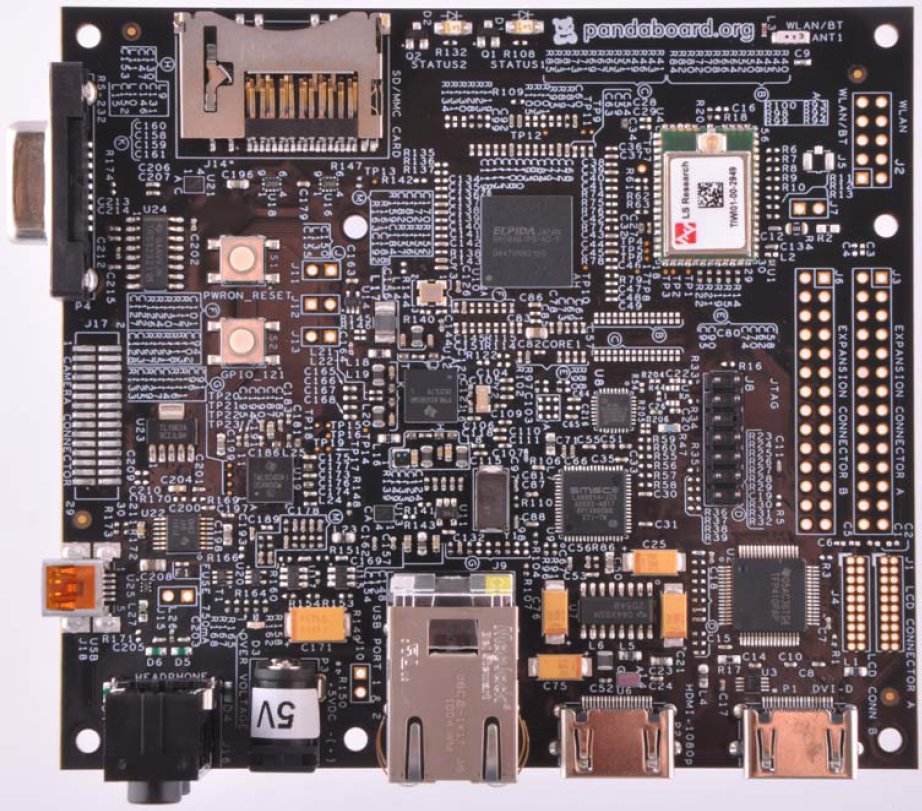David Mandala of Canonical talked at Linux.Conf.Au on 18th of January 2012 about Ubuntu for ARM and the move from netbook to server support. You can read my notes below, or jump at the end of this post to watch the presentation. The Past 2008: Ubuntu decides to only support ARMv7 architecture vs. Debian that supports ARMv4 and above. 2009: Ubuntu release for Freescale i.MX51 (ARMv5 built), and then Marvell ARMAVA with ARMv6 and VFP (ARM floating point unit) support. 2010: April (10.04) The first ARMv7 release for OMAP3 (Beagleboard) with VFP, Thunb2, NEON and SMP for ARM and first netbook edition October (10.10) Pandabord (OMAP4) release with initial device tree support for ARM. Starts work with Linaro. 2011: 11.04 (5th release) – Supports OMAP3 and OMAP4 only. The netbook edition is using Qt, further improvement to device tree, further work with linaro and on the way to the Unified […]
Embedded Linux Conference 2012 Schedule
The Embedded Linux Conference (ELC 2012) will take place on February 15 – 15, 2012 at Hotel Sofitel in San Francisco. ELC consists of 3 days of presentations, tutorials and sessions. There will be over 50 sessions during those 3 days. I’ll highlight a few sessions that I find particularly interesting. February 15 10:30 – 11: 30 – Profiling and Performance Measurement Techniques Using Linux Kernel Tools by Govindraj Raja, Software Engineer at Texas Instruments and Partha S Basak, Technical Manager at Texas Instruments. With ever growing features and functionality of Linux kernel, one needs methods to trace and profile parts of Linux kernel for various reasons like performance analysis, debugging etc. This presentation aims at providing an insight into few of these tools and their salient features. Supporting use case data as captured on open source OMAP4 pandaboard is also provided. 14:00 – 15:00 – The Yocto Project Overview […]
Ubuntu TV Works on OMAP4 Pandaboard
Ricardo Salveti, Software Engineer at Canonical, has written a blog post saying that Ubuntu TV now support full video hardware acceleration on the Pandaboard, TI OMAP 4 low cost development board. A demo of Ubuntu TV on the ARM platform with Ubuntu TV UI and 720p/1080p video playback can be seen in the video below. Pandaboard is the first ARM platform that can fully run Ubuntu TV. If you have a Pandaboard, you can try it out by installing the packages available at Linaro’s Overlay PPA. Qt and Qtmobility are not there yet (Patches are available at https://github.com/robclark/qtmobility-1.1.0), but he said they would be soon. The source code for Ubuntu TV is available at https://code.launchpad.net/~s-team/ubuntutv/trunk Jean-Luc Aufranc (CNXSoft)Jean-Luc started CNX Software in 2010 as a part-time endeavor, before quitting his job as a software engineering manager, and starting to write daily news, and reviews full time later in 2011. […]
Ubuntu TV Features and Video Presentation
A few weeks ago, I wrote a post about Ubuntu Smartphone and Television UI Mockups, and today we know more as Ubuntu has just released more information on Ubuntu TV as well as a Video promo of the system. Here are the key features of Ubuntu TV : All broadcast television – Terrestrial broadcast in US and EU standard formats, for SD and HD content with EPG. Cable and satellite possibilities – Integrate your cable or satellite service into Ubuntu TV. Online Videos – Ubuntu TV integrates online content providers to offer a diverse catalogue of movies, TV shows and music straight from the Internet. Tablet/Smartphones Interaction – Link phones or tablets to Ubuntu TV, presenting related content to viewers while they watch such as information on movies by the same director or the reaction on Twitter during live shows. Intelligent search – To simplify and streamline the experience Ubuntu […]
Linaro 11.12 Release with Kernel 3.1.5
Linaro has just released version 11.12 based on Linux Kernel 3.1.5 and further support for Android 4.0 including graphics hardware acceleration on Snowball and Origen development boards. Here are the highlights of the release: Android Linaro ICS is built with the Linaro toolchain. Linaro ICS is running on all supported boards. DS-5 with Gator is supported in all Linaro Andoid ICS builds. The latest version of libpng (1.5.7) has been integrated in Linaro ICS. An AOSP master build is now available from linaro. ARM® Mali™ Hardware Accelerated Graphics is supported on Origen and Snowball. libjpeg-turbo has been integrated into all Andoid ICS builds. Developer Platform The linux-linaro and lt-panda kernel packages are now automatically generated by the CI build scripts DS-5 with Gator is supported in all Ubuntu LEB builds. XBMC packages, with Gstreamer and OpenGLES support, are now available at the Ubuntu Overlay (supporting only Panda initially) U-Boot-Linaro is […]
Build the bootloaders (U-boot & X-Loader) for Pandaboard
I’ve tried to compile u-boot and x-loader for Pandaboard by following the instructions given at http://omappedia.org/wiki/Get_started_with_ubuntu_on_omap4#Bootloaders. I did this in Ubuntu 10.04 LTS with Linaro gcc compiler. Here are the instructions for the build: Create the folders:
|
1 2 |
mkdir bootloader cd bootloader |
Get u-boot and checkout the omap4_dev branch:
|
1 2 3 |
git clone git://git.omapzoom.org/repo/u-boot.git cd u-boot git checkout L24.9 |
You may use a different tag. Simply run “git tag -l | grep L24” to see the list of tags. (I used the latest at the time of this post). Build u-boot for OMAP4
|
1 2 3 |
make ARCH=arm distclean make ARCH=arm CROSS_COMPILE=arm-linux-gnueabi- omap4430sdp_config make ARCH=arm CROSS_COMPILE=arm-linux-gnueabi- |
At this point, you should get U-boot (u-boot.bin). get x-loader and checkout the omap4_dev branch:
|
1 2 3 4 |
cd .. git clone git://git.omapzoom.org/repo/x-loader.git cd x-loader git checkout L24.9 |
N.B: Both u-boot and x-loader folders must be at the same directory level. build x-loader for OMAP4:
|
1 2 3 |
make ARCH=arm distclean make ARCH=arm CROSS_COMPILE=arm-linux-gnueabi- omap4430sdp_config make ARCH=arm CROSS_COMPILE=arm-linux-gnueabi- ift |
The x-loader (MLO) should now be ready. Finally, you simply need to copy MLO and u-boot.bin files to the SD card. Jean-Luc Aufranc (CNXSoft)Jean-Luc started CNX Software in 2010 as a part-time endeavor, before quitting […]
New Development Board: Pandaboard ES with TI OMAP4460
Somehow I’ve missed the announcement of the Pandaboard ES – a new version of the Pandaboard low cost development board – last month. The Pandaboard ES is built around OMAP4460 processor running at 1.2 GHz with 1GB RAM and an SD/MMC card slot. It features onboard 10/100MBit Ethernet, Wifi, Bluetooth, several video output ports (HDMI, DVI-D, LCD Expansion and DSI), audio input/audio, several expansion ports (USB 2.0 OTG, USB 2.0 host, GPIO header, camera header..) and debug ports (JTAG, UART, 2 status LEDs, 1 GPIO button and sysboot switch). It has the same form factor as the original Pandaboard (114.3mm x 101.6mm) and weights 81.5g instead of 74g for the Pandaboard. The cost is however slightly higher at 182 USD (recommended price) vs. 174 USD for the Pandaboard. To help you choose which board is best for you, I’ve created a table comparing Pandaboard and Pandaboard ES specifications and features. […]
Linaro 11.11 Release with Kernel 3.1.1 and Android 4.0.1 Support
Linaro has just released version 11.11 based on Linux Kernel 3.1.1 and with support for Android ICS. The Android 4.0.1 Preview build for all low cost development boards supported by Linaro are available at http://releases.linaro.org/11.11/android/images-ics-preview/. Here are the highlights of the release: Android Linaro’s baseline has now been upgraded to 2.3.7. The first Versatile Express Android build has been completed. Pandaboard and Vexpress has been upgraded to kernel 3.1.1. A preview of Ice Cream Sandwich is released and running on Snowball, Origen, iMX53 and on Pandaboard with Linaro kernels. A NEON-optimized libpng has been itegrated in all builds. Preliminary DS-5 support has been integrated. Preliminary WiFi support on Android Origen. Kernel config for each build is available on android-build page. USB Ethernet works on Origen. Camera recording function works on Pandaboard. USB camera can be hotplugged on Pandaboard. Developer Platform Firefox can now be cross-built using multiarch. Instructions are available […]







